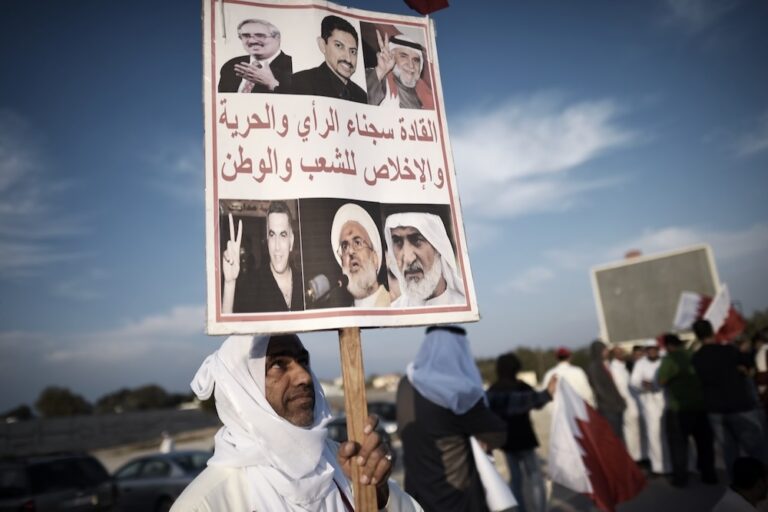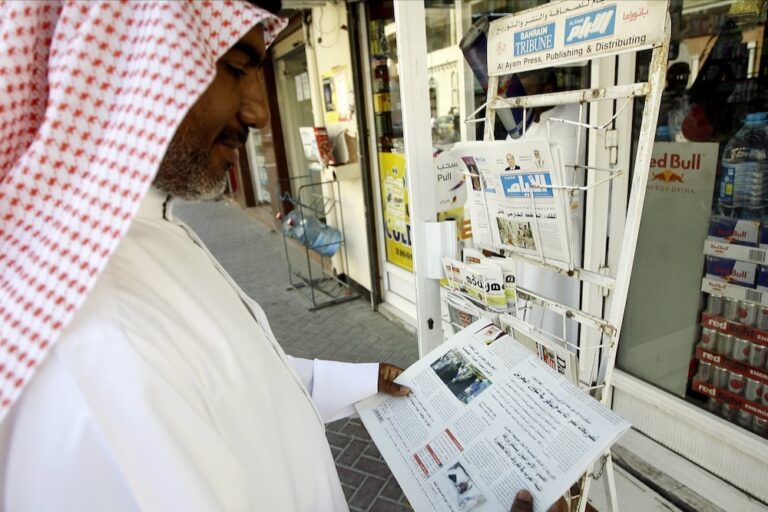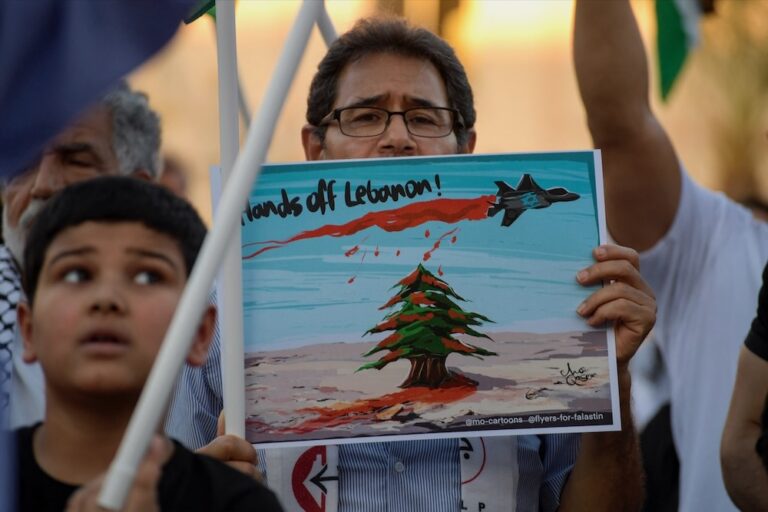Three human rights defenders, including the director of IFEX member BCHR, were prevented from leaving the country, even though there are no official travel bans against them.
(BCHR/IFEX) – 28 September 2010 – The Bahrain Center for Human Rights (BCHR) is concerned about the de facto ban on travel imposed on three human rights defenders: Layla Dashti, leading member of the Committee of Detainees, Abdulhadi Alkhawaja, regional coordinator for Front Line, the international organization based in Dublin, and Nabeel Rajab, president of BCHR, member of the Advisory Committee of Human Rights Watch’s Middle East division, Chairperson of Coordination of Action Research on AIDS & Mobility Asia (CARAM) and Deputy Secretary General of Fédération Internationale des ligues des Droits de l’Homme (FIDH).
On 18 September 2010, Ms. Layla Dashti was prevented from leaving Bahrain airport while heading to Geneva to participate in a seminar on Bahrain during the meetings of the United Nations Human Rights Council. An official in plain clothes ordered the passport officer not to allow Ms. Dashti to travel, despite an argument from the passport officer that the computer system did not show an official ban on her travel. The next day she went to the relevant authorities at the Ministry of Interior and the Passport Department, where they assured her that there was no official ban on travel against her and that they have no explanation why she was prevented from travelling.
On 26 September, at 3:30 a.m., Abdulhadi Alkhawaja was leaving Bahrain airport to go to Barcelona to attend a human rights course on transitional justice. At the passport checkpoint, his passport was taken away for five minutes and an official in plain clothes came and told the passport officer that Alkhawaja is banned from travelling. The passport officer accompanied Alkhawaja to the check-in desk to cancel the boarding cards and ordered him to reclaim his luggage.
On 28 September, Alkhawaja’s lawyer, Mohammed Al-Jeshi, managed to meet with Wa’el Bu-Allai, the acting Attorney General (head of the Attorney General’s Office). Bu-Allai told Aljeshi that preventing anybody from leaving the country must be based either on a court order or an order by the Prosecution Office. He confirmed that there was no such order against Alkhawaja so he should not have been prevented from leaving the country.
On 27 September, at 10:30 a.m., Nabeel Rajab was prevented from leaving Bahrain at the causeway to Saudi Arabia. At the passport checkpoint, Rajab was left waiting for about 30 minutes when a security officer in plain clothes accompanied him back to the Bahrain arrivals passport point, where he was informed that he was not allowed to leave the country. When Rajab asked if there was an official ban on travel against him, the passport officer answered that there was no such order on the computer system.
Alkhawaja told BCHR: “Last year when I was prevented from leaving the country, the passport department told me that their computer system did not show an order preventing me from leaving the country and that it might be the decision of an apparatus other then the Ministry of Interior. When I asked if it was the National Security Apparatus they refused to answer.”
The same experience happened to human rights defender Abdulredha Mohammed in June 2010. Mohammed was told by the passport officer that there was no official travel ban against him, however, he was not able to travel unless he checked with the National Security Apparatus. In both these previous cases the de facto ban was lifted as result of public campaigning, international pressure and intervention by international human rights organizations.
In regard to the possible motive behind this travel ban, it is worth noting that this apparatus unofficially published a conclusive report in the “Al-Watan” daily newspaper which included accusations against Alkhawaja and Rajab of supporting violence by submitting false information to international organizations.
“It seems that the National Security Apparatus is in a panic and has decided to misuse its influence to prevent human rights defenders from travelling, assuming that this will hinder reporting human rights abuses, especially those committed by the Apparatus itself, to international bodies.
“Reporting human rights violations to international bodies is a noble work, not a crime, however, I personally have not been reporting on human rights in Bahrain to international organizations since I started working with Front Line in October 2008. As a policy, my work with Front Line covers the region excluding Bahrain where I am based and which is covered by another colleague,” explained Alkhawaja.
BCHR calls on the Bahraini authorities to:
1. Immediately remove the de facto ban on travel against Layla Dashti, Abdulhadi Alkhawaja, and Nabeel Rajab and any other human rights defender who could be banned from travelling because of his human rights work;
2. Conduct an independent, thorough and prompt investigation into abuses committed by the National Security Apparatus including misuse of its influence to ban the travel of human rights defenders, make the result public, and bring those responsible to justice;
3. Secure a safe environment for the work of human rights defenders in accordance with the United Nation’s Declaration on Human Rights Defenders.


